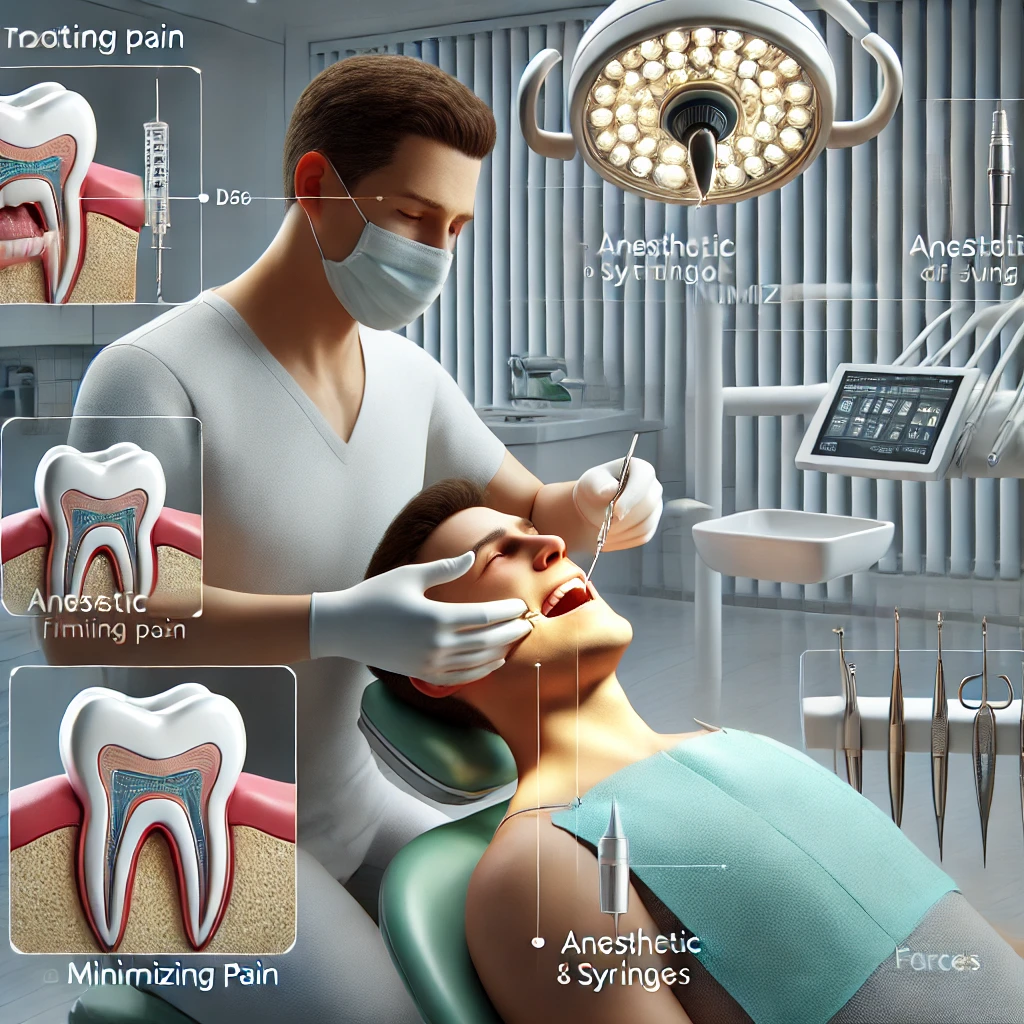Tooth extraction is a common dental procedure, but for many people, the thought of it brings up one big question: “Is tooth extraction very painful?” While it’s natural to worry about pain, modern dental techniques and anesthetics ensure that most patients experience minimal discomfort during and after the procedure. This article explores what to expect, pain management strategies, and tips for a comfortable recovery.
What to Expect During Tooth Extraction
1. The Procedure Itself
Tooth extraction can be categorized as:
- Simple Extraction: For visible teeth, where the dentist loosens the tooth with an instrument and removes it with forceps.
- Surgical Extraction: For impacted or difficult-to-reach teeth, involving incisions and possibly bone removal.
Pain Level During the Procedure
- Local Anesthesia: Numbs the area completely, so you won’t feel pain, only pressure or movement.
- Sedation Options: Nitrous oxide (“laughing gas”) or IV sedation can be used for anxious patients to make the experience more relaxing.
2. Immediately After the Procedure
Once the anesthesia wears off, you may feel mild to moderate discomfort. This is manageable with proper care and medication.
Is Tooth Extraction Painful During Recovery?
Some discomfort is expected during recovery, but most patients report that it is less severe than anticipated. The level of pain depends on factors such as the complexity of the extraction and individual pain tolerance.
Typical Pain Timeline
- First 24 Hours: Mild to moderate pain as the blood clot forms in the socket.
- Days 2-3: Swelling may peak, but pain should begin to subside.
- Days 4-7: Most discomfort resolves with proper care.
What About Complications Like Dry Socket?
- Dry socket occurs when the blood clot is dislodged, exposing the underlying bone and nerves.
- It can be more painful than normal recovery and requires additional treatment from your dentist.
How Dentists Minimize Pain
- Pre-Procedural Measures
- Dentists use numbing agents and sedation to ensure a painless experience.
- Pain medications or antibiotics may be prescribed before the procedure for those with existing infections.
- Aftercare Recommendations
- Over-the-counter or prescribed pain relievers.
- Ice packs to reduce swelling and discomfort.
Tips to Minimize Pain and Discomfort
- Follow Post-Extraction Instructions
- Avoid vigorous rinsing or spitting for 24 hours to protect the blood clot.
- Stick to soft foods like yogurt, soup, or mashed potatoes.
- Take Medications as Prescribed
- Use pain relievers and anti-inflammatory medications as directed.
- Apply Ice Packs
- Use cold compresses on the outside of your face for 15-20 minutes at a time during the first 24 hours.
- Avoid Activities That Can Cause Complications
- Don’t smoke, use straws, or engage in strenuous activities that might dislodge the blood clot.
When to Contact Your Dentist
If your pain worsens after 2-3 days or you experience any of the following symptoms, reach out to your dentist immediately:
- Severe or throbbing pain.
- Foul taste or odor from the extraction site (a sign of infection).
- Prolonged bleeding or swelling.
FAQs About Tooth Extraction Pain
1. Will I feel pain during tooth extraction?
No. Thanks to local anesthesia, you shouldn’t feel pain during the procedure, only pressure or slight movement.
2. How long does the pain last after tooth extraction?
Most discomfort subsides within 3-5 days, with significant improvement by the end of the first week.
3. Is surgical extraction more painful than a simple extraction?
Surgical extractions can cause more post-operative discomfort due to tissue manipulation, but effective pain management minimizes the difference.
4. Can I avoid pain altogether?
While some discomfort is natural, following your dentist’s aftercare instructions and using prescribed medications can significantly reduce pain.
Final Thoughts
So, is tooth extraction very painful? For most people, the answer is no. With modern dental techniques and proper aftercare, pain is manageable and short-lived. While the idea of extraction can be intimidating, your dentist will ensure the procedure is as comfortable as possible.
If you have concerns about pain or the procedure itself, talk to your dentist. They can provide reassurance and options to address your specific needs.
